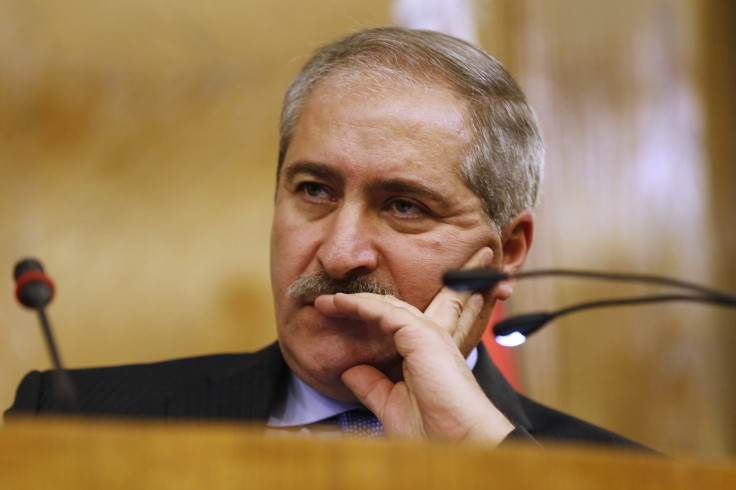Japan ISIS Update: Negotiations Between Jordan and ISIS Over Hostages Have Failed, Fate Of Kenji Goto Uncertain

Negotiations between the Islamic State militant group and Jordan seemed to have failed, a source with information about the situation said Thursday. Jordan has held off swapping detained Iraqi terrorist Sajida al-Rishawi in exchange for Jordanian air force pilot Muath al-Kaseasbeh and Japanese journalist Kenji Goto without proof that al-Kaseasbeh is alive first.
"We asked for evidence that the pilot is still alive and we have not received anything yet. We insist on this demand," government spokesman Mohammad al-Momani told reporters in Amman, according to Reuters. He said Jordan was coordinating with Japanese authorities to secure the release of Goto, who is also held by the terrorist group. Jordan’s Foreign Minister Nasser Judeh had asked for the same proof on Wednesday around 10 a.m. EST but received no word.
Officials, speaking on the condition of anonymity, told the New York Times that al-Rishawi would remain jailed in Jordan as long as there was no proof al-Kaseasbeh was still alive. The deadline for the hostage exchange passed at sunset Mosul time, or 10 a.m. EST. The militant group also known as ISIS had said that upon al-Rishawi’s release it would free Goto. They promised not to kill al-Kaseasbeh, but stopped short of promising to release the pilot. No official statement had been given that al-Rishawi was still in the country, but Judeh said Wednesday via Twitter that she was.
Meanwhile, Japan is relying on Jordan to ensure that the situation pans out right, with officials holding on to hope that another hostage murder is not a “conclusion foregone.” Goto was originally captured in Syria along with Japanese civilian Haruna Yukawa and they were shown in a video released by ISIS on Jan. 20 demanding $200 million within 72 hours, an amount mirroring what Japanese Prime Minister Shinzo Abe had pledged in non-military aid to the Middle East in combating ISIS. Abe said the Japanese government will not pay, and Yukawa was apparently shown executed in a video released late Saturday. ISIS then released an audio clip demanding Goto’s and al-Kaseasbeh’s life in exchange for al-Rishawi and another detained terrorist, Ziad al-Karbolil, with a 24-hour deadline ending on Thursday.
Goto’s wife, Rinko Goto, broke her silence since news of her husband’s capture first came out. She released a statement on Thursday begging the Jordanian and Japanese governments to save her husband. “My husband and I have two very young daughters. Our baby girl was only three weeks old when Kenji left,” Rinko said, according to the BBC. “I want them both to grow up knowing their father. My husband is a good and honest man who went to Syria to show the plight of those who suffer,” she said, adding that the fates of her husband and the pilot are in the hands of the two governments.
© Copyright IBTimes 2024. All rights reserved.












